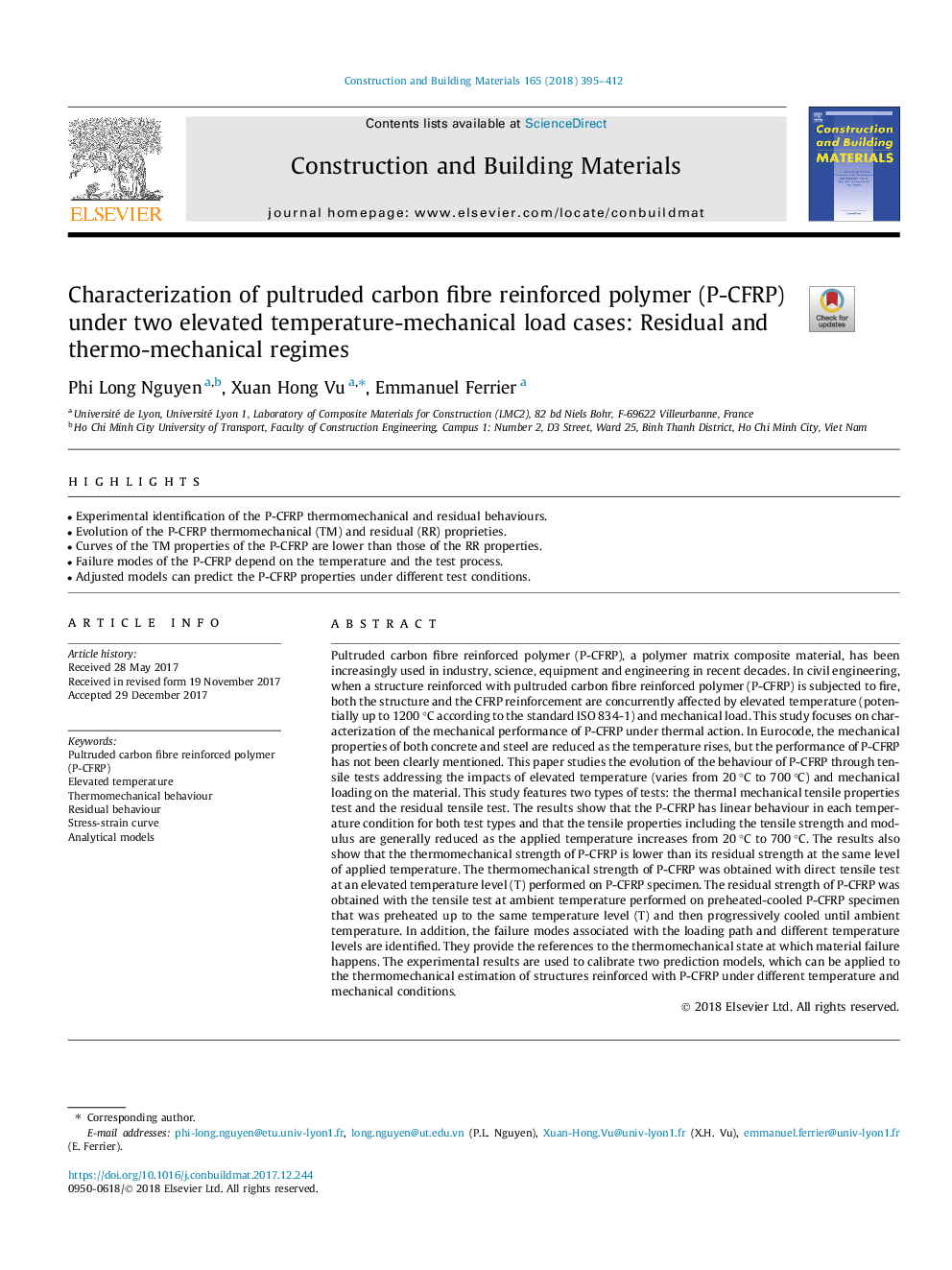| کد مقاله | کد نشریه | سال انتشار | مقاله انگلیسی | نسخه تمام متن |
|---|---|---|---|---|
| 6715630 | 1428741 | 2018 | 18 صفحه PDF | دانلود رایگان |
عنوان انگلیسی مقاله ISI
Characterization of pultruded carbon fibre reinforced polymer (P-CFRP) under two elevated temperature-mechanical load cases: Residual and thermo-mechanical regimes
دانلود مقاله + سفارش ترجمه
دانلود مقاله ISI انگلیسی
رایگان برای ایرانیان
کلمات کلیدی
موضوعات مرتبط
مهندسی و علوم پایه
سایر رشته های مهندسی
مهندسی عمران و سازه
پیش نمایش صفحه اول مقاله

چکیده انگلیسی
Pultruded carbon fibre reinforced polymer (P-CFRP), a polymer matrix composite material, has been increasingly used in industry, science, equipment and engineering in recent decades. In civil engineering, when a structure reinforced with pultruded carbon fibre reinforced polymer (P-CFRP) is subjected to fire, both the structure and the CFRP reinforcement are concurrently affected by elevated temperature (potentially up to 1200â¯Â°C according to the standard ISO 834-1) and mechanical load. This study focuses on characterization of the mechanical performance of P-CFRP under thermal action. In Eurocode, the mechanical properties of both concrete and steel are reduced as the temperature rises, but the performance of P-CFRP has not been clearly mentioned. This paper studies the evolution of the behaviour of P-CFRP through tensile tests addressing the impacts of elevated temperature (varies from 20â¯Â°C to 700â¯Â°C) and mechanical loading on the material. This study features two types of tests: the thermal mechanical tensile properties test and the residual tensile test. The results show that the P-CFRP has linear behaviour in each temperature condition for both test types and that the tensile properties including the tensile strength and modulus are generally reduced as the applied temperature increases from 20â¯Â°C to 700â¯Â°C. The results also show that the thermomechanical strength of P-CFRP is lower than its residual strength at the same level of applied temperature. The thermomechanical strength of P-CFRP was obtained with direct tensile test at an elevated temperature level (T) performed on P-CFRP specimen. The residual strength of P-CFRP was obtained with the tensile test at ambient temperature performed on preheated-cooled P-CFRP specimen that was preheated up to the same temperature level (T) and then progressively cooled until ambient temperature. In addition, the failure modes associated with the loading path and different temperature levels are identified. They provide the references to the thermomechanical state at which material failure happens. The experimental results are used to calibrate two prediction models, which can be applied to the thermomechanical estimation of structures reinforced with P-CFRP under different temperature and mechanical conditions.
ناشر
Database: Elsevier - ScienceDirect (ساینس دایرکت)
Journal: Construction and Building Materials - Volume 165, 20 March 2018, Pages 395-412
Journal: Construction and Building Materials - Volume 165, 20 March 2018, Pages 395-412
نویسندگان
Phi Long Nguyen, Xuan Hong Vu, Emmanuel Ferrier,